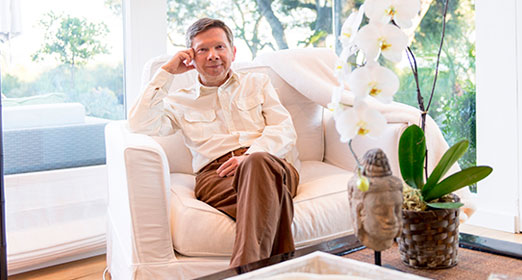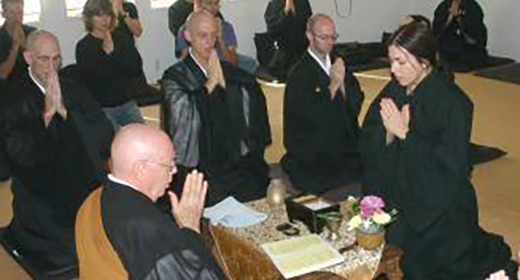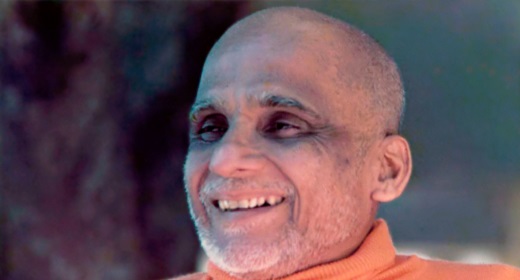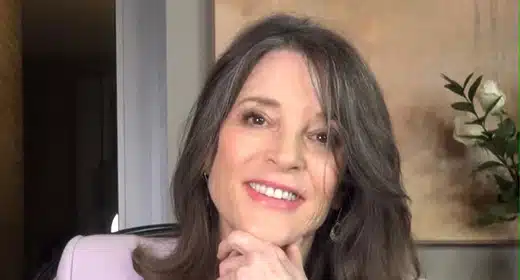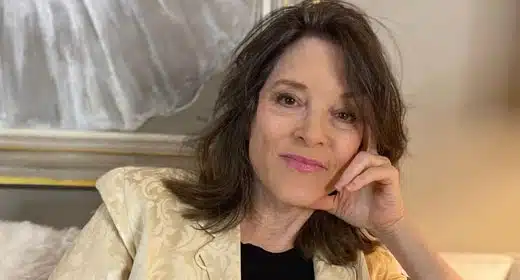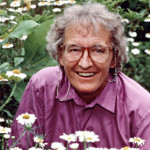Rabbi Michael Lerner Ph.D. On The Folly Of Nationalism: by Mark Leviton: On the first Sunday of Lent 2012 Rabbi Michael Lerner delivered the guest sermon at St. Mark’s United Methodist Church in the San Francisco Bay Area. 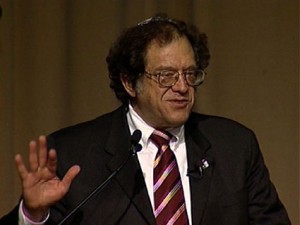 Dressed in a suit and the traditional Jewish prayer shawl and yarmulke, he spoke for half an hour without notes and challenged the congregation to apply the revolutionary teachings of Jesus and the Prophets to their own lives. While acknowledging that religions throughout history have often created division, enmity, and fear, he cited evidence of what he calls the “progressive tradition” in all the world’s faiths: the emphasis on showing compassion, easing suffering, and protecting the environment. He urged his listeners to oppose the Christian Right’s efforts to dominate the discussion about religious values and politics but cautioned against demonizing others. At a reception after the service he signed his latest book, Embracing Israel/Palestine: A Strategy to Heal and Transform the Middle East, a provocative vision of a path to reconciliation.
Dressed in a suit and the traditional Jewish prayer shawl and yarmulke, he spoke for half an hour without notes and challenged the congregation to apply the revolutionary teachings of Jesus and the Prophets to their own lives. While acknowledging that religions throughout history have often created division, enmity, and fear, he cited evidence of what he calls the “progressive tradition” in all the world’s faiths: the emphasis on showing compassion, easing suffering, and protecting the environment. He urged his listeners to oppose the Christian Right’s efforts to dominate the discussion about religious values and politics but cautioned against demonizing others. At a reception after the service he signed his latest book, Embracing Israel/Palestine: A Strategy to Heal and Transform the Middle East, a provocative vision of a path to reconciliation.
Born in 1943, Lerner grew up in an affluent home in Newark, New Jersey. His father was a judge, and his mother was a campaign chair to a U.S. senator. (When Lerner applied to college, President John F. Kennedy was among those who wrote letters of recommendation.) Before World War II his parents had been leaders in the Zionist movement, and Lerner grew up surrounded by socialist Israeli pioneers. He came to see conspicuous consumption and the Cold War as threats to the values of both American society and the Jewish community. When he discovered Abraham Joshua Heschel’s book God in Search of Man, he began his lifelong quest to bring mystical and meditative practices back into modern Judaism as part of the “Jewish Renewal” movement.
Lerner studied at Columbia University, lived on an Israeli kibbutz, and participated in the Free Speech Movement at the University of California at Berkeley. By the end of the sixties he was an assistant professor of philosophy at the University of Washington in Seattle and a leader in the antiwar movement. As one of the Seattle Seven he was arrested for alleged conspiracy to incite a riot and jailed for contempt of court. (The conspiracy charges were later dropped.)
In the eighties he worked as a clinical psychologist in the San Francisco Bay Area, having completed two PhDs: in philosophy at UC Berkeley and in clinical and social psychology at the Wright Institute. Concerned about the shift toward conservatism in the Jewish community, he founded the magazine Tikkun (Hebrew for “healing and transformation”) to give a voice to progressive Judaism and interfaith dialogue. He was ordained as a rabbi in 1995 and a year later founded Beyt Tikkun, a “movable synagogue” that welcomes members of all religions as well as atheists and agnostics (www.beyttikkun.org).
I first sought out Rabbi Lerner after attending an Orthodox synagogue for years. I’d been raised in a typical assimilated Jewish family: my parents sent me to Hebrew school and gave me a bar mitzvah but had discarded basic Jewish observances like Sabbath restrictions and keeping kosher. I wanted a Judaism connected to deep traditions, and the modern Orthodox Jewish community had given me that, but I’d become uncomfortable with the openly anti-Arab, homophobic, and racist rhetoric I heard from some congregants. Friendly conversations could turn into discussions of the “enemies of the Jews” who were always “ready to attack us,” and any criticism of the Israeli government was dismissed out of hand. Within the community there was great caring and kindness, but non-Jews were often seen as corrupt and dangerous.
Then I discovered Rabbi Lerner’s “Introductory Judaism” course, which he offered at his home in the Berkeley hills. About twenty people attended, many not Jewish. Over three days Rabbi Lerner gave us a fascinating and detailed history of Judaism, the development of Christianity and Islam, the history of the Jews in Europe and the U.S., and the current state of Jewish Renewal.
In 2005 Rabbi Lerner founded the Network of Spiritual Progressives, an interfaith social-justice organization, and he currently serves as its codirector, along with professor and civil-rights activist Cornel West and Catholic nun Joan Chittister.
I interviewed Rabbi Lerner at his home in Berkeley. One of his favorite words is nuanced. In his writings and speeches he often constructs long, complex sentences full of clauses and parentheticals in order to include as much nuance as necessary. He dislikes sound bites, diatribes, and black-or-white thinking. In between passionate yet precise answers to questions, he grabbed a bite to eat with his wife, Deborah, who is also a rabbi, and played with the family dog. Although Lerner has had lung cancer for several years, he rarely slows down until exhaustion demands it. “Make sure you include my e-mail address,” he said (rabbilerner@tikkun.org). He loves to keep the conversation going.

